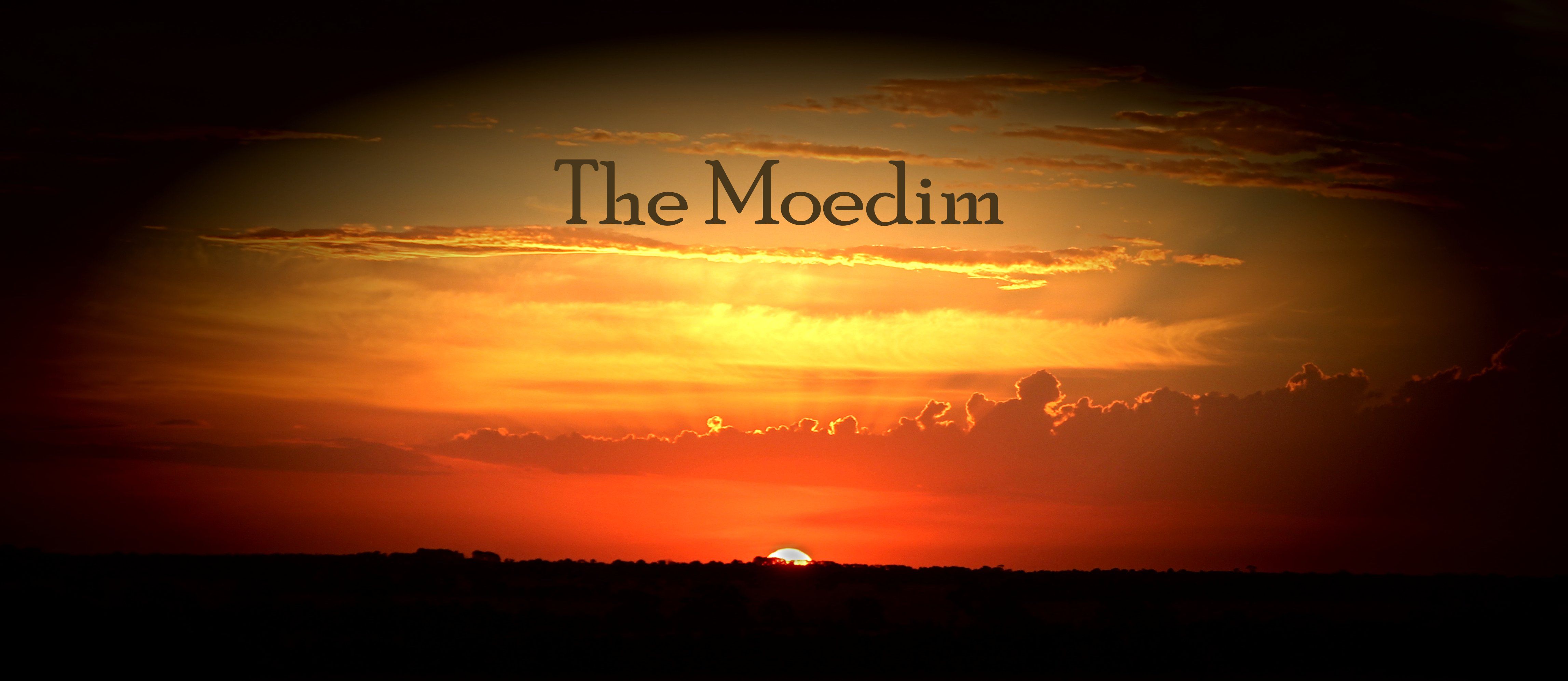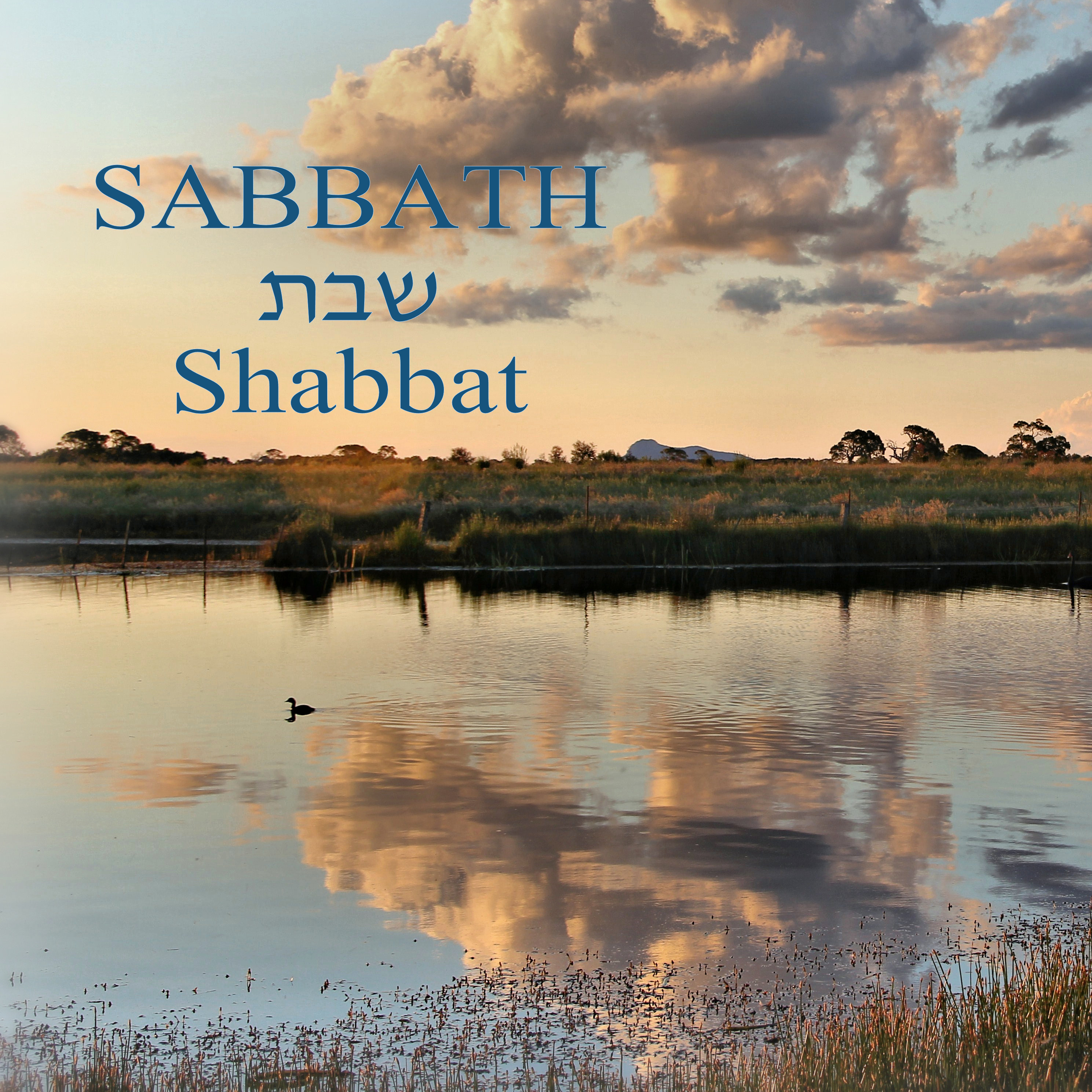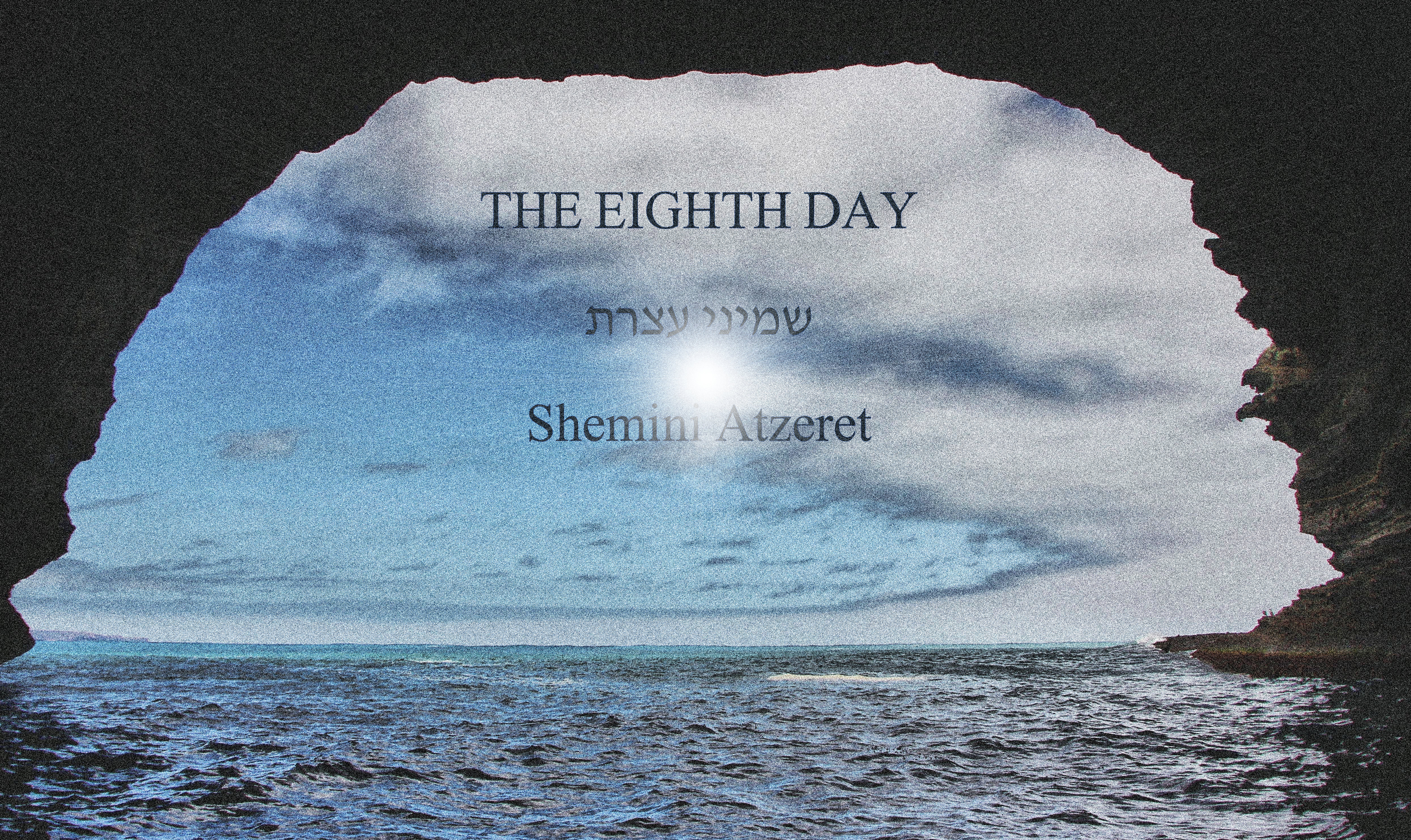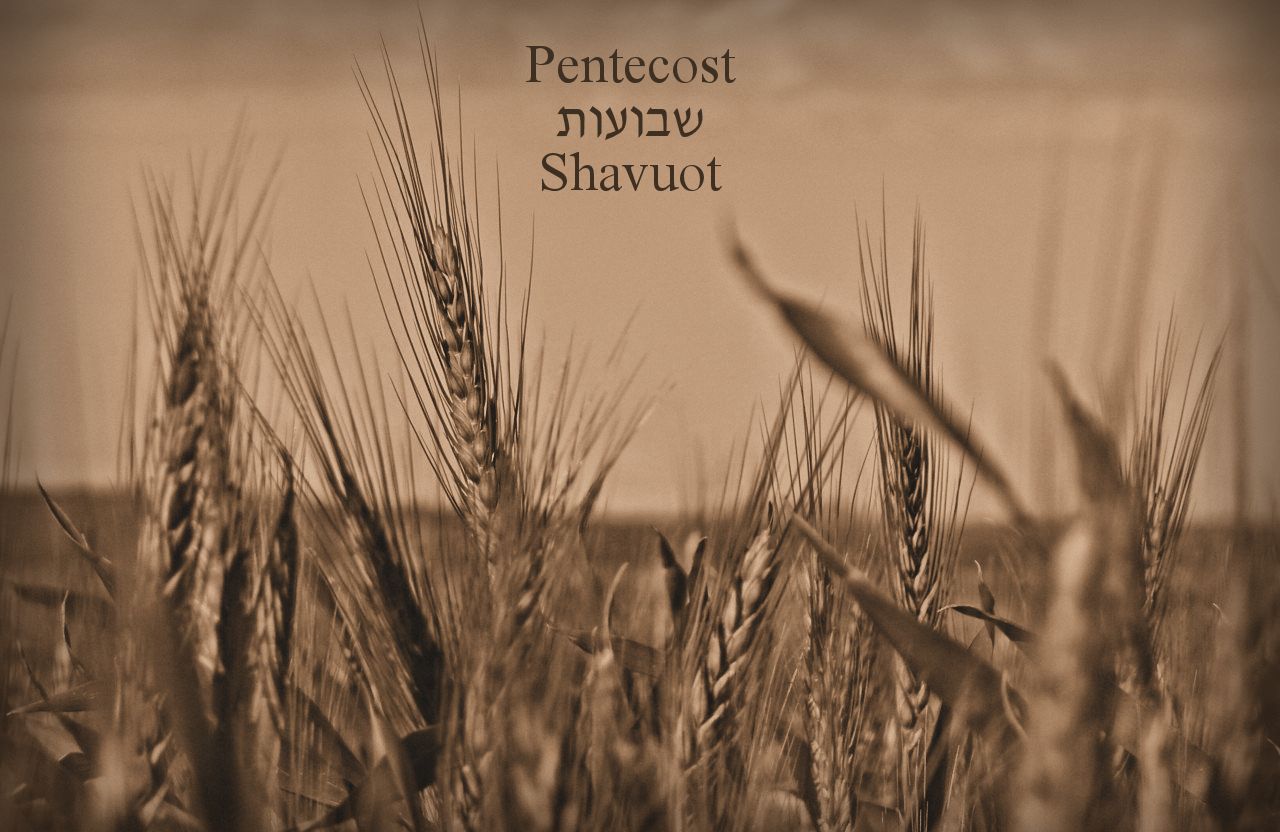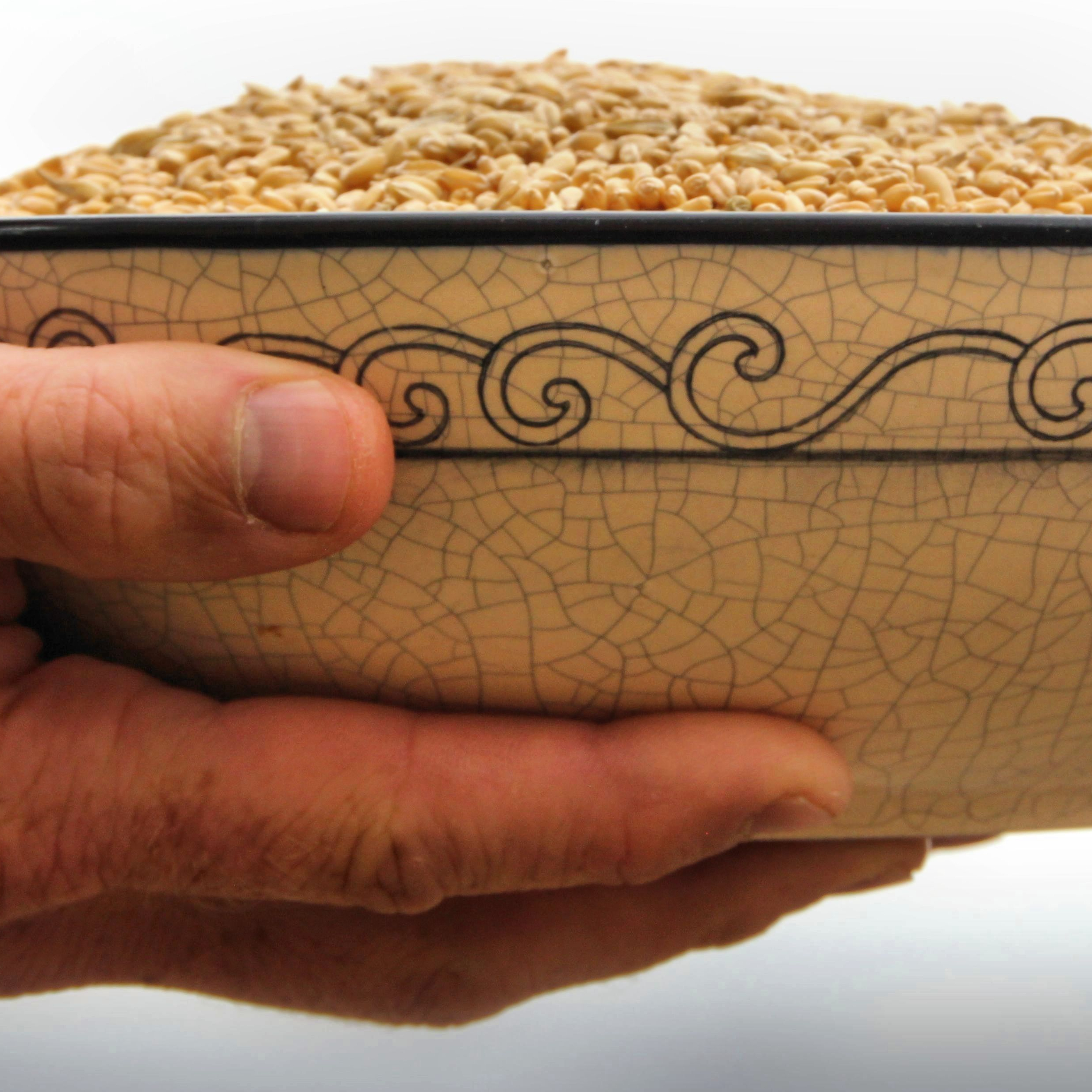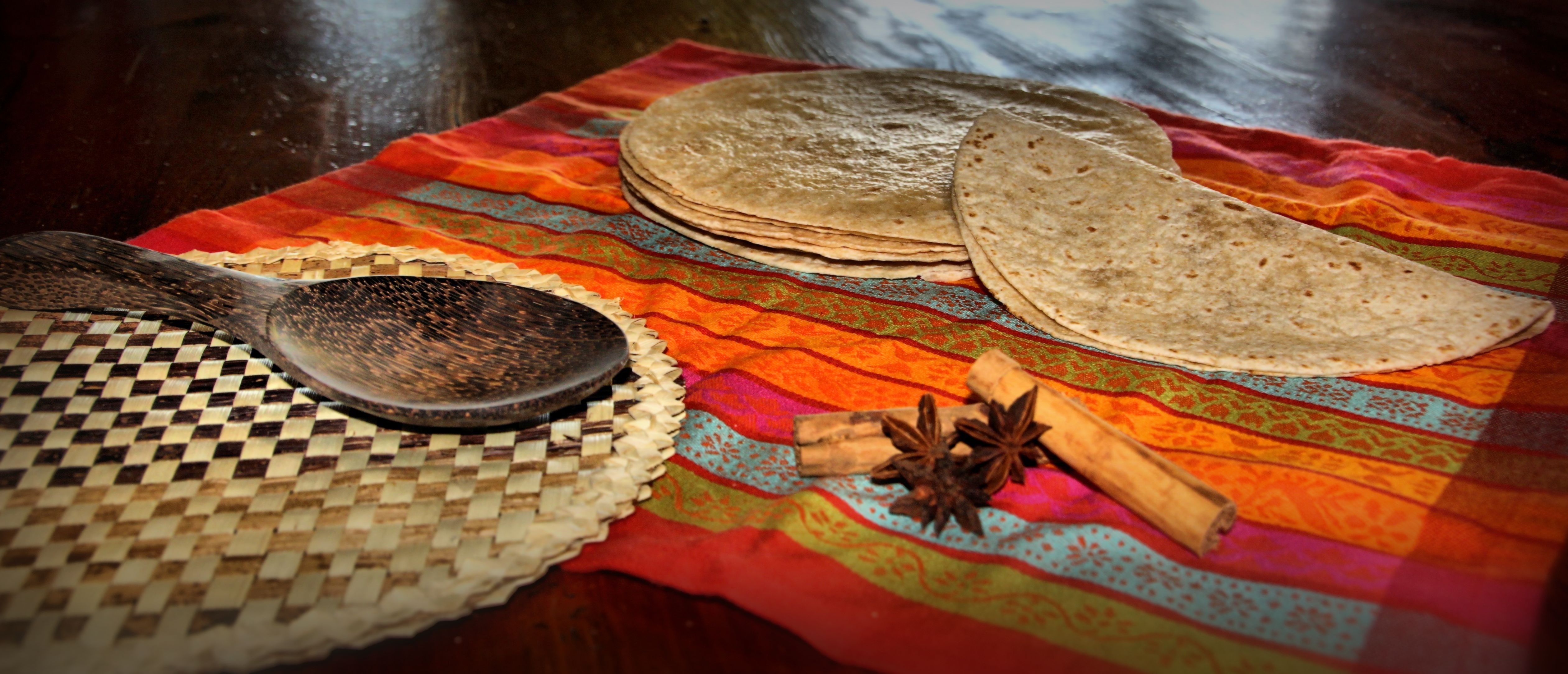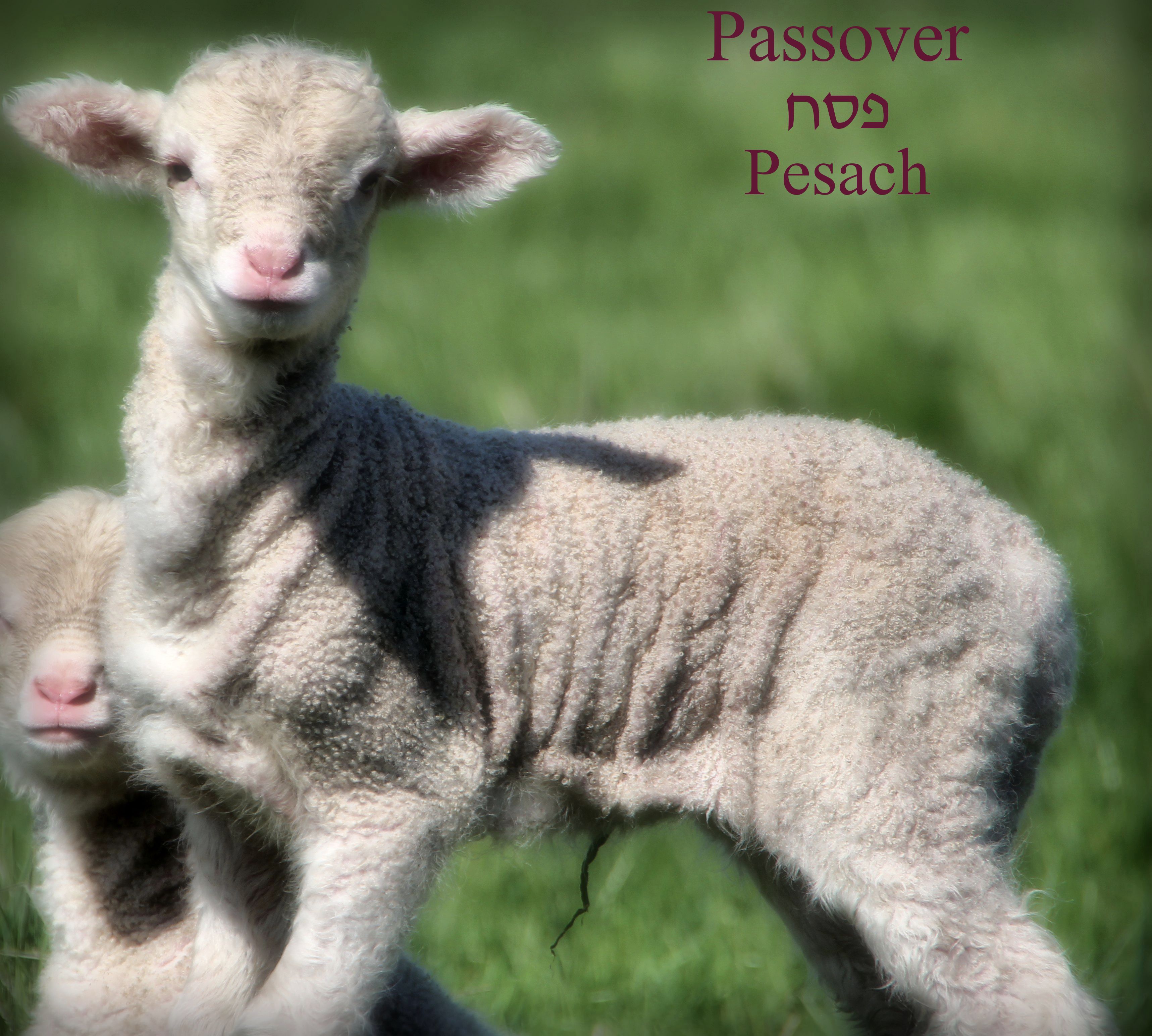Moedim (pronounced: mow-ed-eem) is a Hebrew word that is usually translated as “feasts” in our Bibles. However, the word actually means “appointments” or “appointed times”. Other words associated with these Moedim also indicate that they are “rehearsals”. The Appointed Times are listed in Leviticus 23.
more “The Moedim מועדים – An Introduction”Category: Moedim (Appointed Times) Overview
The Sabbath שבת Shabbat
Although I’ve left it until last, the very first of the Moedim is mentioned in verse three of Leviticus 23:
“Six days shall work be done: but the seventh day is the sabbath of rest, an holy convocation; ye shall do no work therein: it is the sabbath of YHWH in all your dwellings.”
more “The Sabbath שבת Shabbat”The Eighth Day שמיני עצרת Shemini Atzeret
This final Appointed Time/moed for the year is often a forgotten one. It is usually lumped in with Sukkot/Feast of Tabernacles, making the feast eight days long. However, reading Lev 23:36, we see that Sukkot is clearly a seven day feast, with the eighth day then being a day of a solemn assembly and no work, in its own right.
more “The Eighth Day שמיני עצרת Shemini Atzeret”Feast of Tabernacles סכות Sukkot
Sukkot, the Feast of Tabernacles or Booths, begins on the 15th day of the seventh Scriptural month, and is a seven day long moed/appointed time. The first day is a day of rest, and there were sacrifices ordained for each of the seven days. Every seven years, the Torah was to be read publicly to the people, and it was to be a time of great rejoicing (actually commanded, Deut 16:14) because of the blessings and increase that YHWH had given His people. By this time of year, all the produce of the land would have been harvested and stored, so it was a real time of thanksgiving. (Interestingly, there is some evidence to suggest that the original Thanksgiving that the pilgrims had in America was a Sukkot celebration.)
more “Feast of Tabernacles סכות Sukkot”Day of Atonement יום כפור Yom Kippur
Yom Kippur is the moed/appointed time that occurs on the tenth day of the seventh Scriptural month. It would actually be more correct to call the day Yom Kippurim, or Day of Atonements, as Scripture always has the plural form. It is considered to be the most solemn day of the year and is a day of total rest from work. Offerings were made and it was commanded that “ye shall afflict your souls” (See Lev 23:26-32). Because of this command, it is considered to be a day of fasting and denying personal pleasures. It is worth noting that YHWH states that Yom Kippur “shall be a statute forever throughout your generations”!
more “Day of Atonement יום כפור Yom Kippur”Day of Trumpets יום תרוה Yom Teruah
The Day of Trumpets begins on the first day of the seventh Scriptural month. It is known today by the Jews as Rosh Hashanah – the beginning of their new year. This is not a Scriptural reckoning by any means, as the month YHWH proclaims as the first of the year is clearly the month that contains Passover.
more “Day of Trumpets יום תרוה Yom Teruah”Pentecost שבועות Shavuot
The Hebrew word, Shavuot, means “weeks”, as this next Appointed Time is seven full weeks counted from Unleavened Bread. For this reason, the day is also known as the “Feast of Weeks”. Pentecost is a Greek word meaning “fiftieth” because the day is the “morrow” after the seventh Sabbath counted, making it the fiftieth, and final, day of the Omer count.
more “Pentecost שבועות Shavuot”Counting the Omer
The counting of the Omer is a little known aspect of the Moedim amongst Christians. The Omer was the quantity of barley grain used during the ceremony on the Day of Firstfruits. That Day of Firstfruits (a Sunday) was day one of the count to Shavuot (the next of the Moedim).
more “Counting the Omer”Day of First Fruits יום הבכורים Yom HaBikkurim
This day (also known as the “Day of the Wave Sheaf Offering”) occurs during the seven days of the Feast of Unleavened Bread. It is the day after the weekly Sabbath – known today as Sunday. It was not a commanded day of rest, but simply a day when an omer (a little over two litres) of the early barley grain was waved or raised by the priest at the temple. None of the season’s barley was to be eaten until after this ceremony each year. The sacrifices that accompanied the waving of the omer were a male lamb, unleavened bread and wine. Interestingly, these were the elements the Messiah used in His “Last Supper”, with Himself as the lamb!
more “Day of First Fruits יום הבכורים Yom HaBikkurim”Feast of Unleavened Bread חג המצות Chag HaMatzot
The Feast of Unleavened Bread is a seven day long feast/festival, where no leaven is to be within the household. Passover is actually the first meal of this week-long “Moed” (Appointed Time), as it is eaten after sunset on the 14th of Abib/Nissan. Sunset ends the day in YHWH’s reckoning of time, so the 15th day of the month begins in time for the Passover meal. The first and seventh days are “High Sabbaths”, where no work is to be done.
more “Feast of Unleavened Bread חג המצות Chag HaMatzot”Passover פסח Pesach
Passover is the first of the Moedim in YHWH’s calendar, that occurs during the barley harvest. It’s also the first of the Moedim that our family began to observe (in 2007). At the time, we simply wanted an annual Biblical event that could begin a family tradition that was not based on pagan beliefs and practices. It seemed like the natural replacement, even though we knew little about the observance of it. Each year we’ve had an evening meal consisting of unleavened bread and roasted lamb, as we spend time praying and reading Scriptures that remind us of YHWH’s Passover and focusing on the Lamb of God who takes away the sins of the world.
more “Passover פסח Pesach”